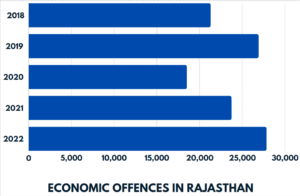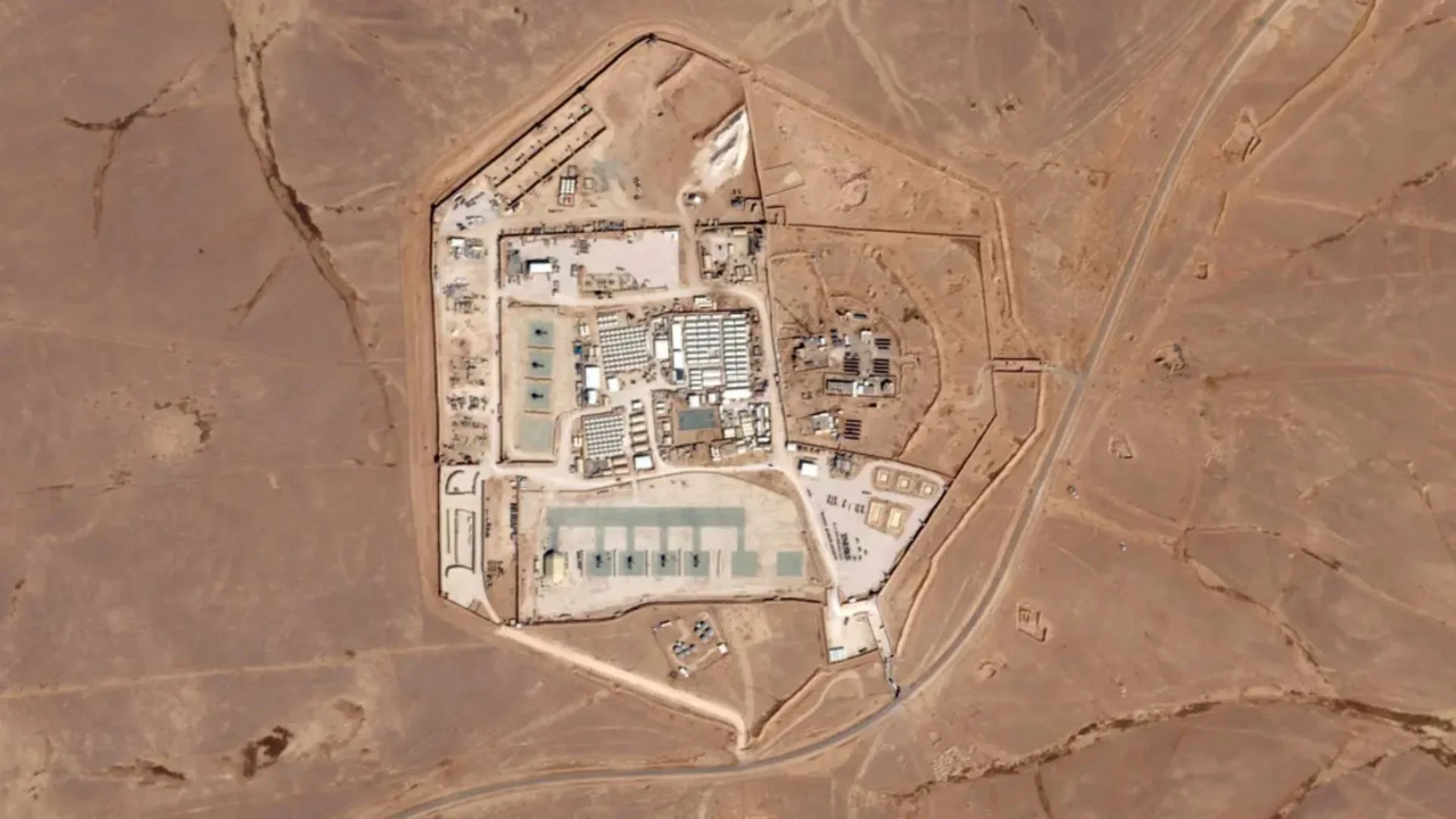Jaipur has maintained its position at the forefront of economic crimes in the country for the third consecutive year, according to the recently released report by the National Crime Records Bureau for the year 2022.

The state of Rajasthan, spearheaded by its capital city Jaipur, has consistently ranked at the top in the nation for economic crimes over the past three years.
This persistent trend underscores the challenges posed by economic offences in the region, emphasising the need for targeted measures and increased vigilance to address and curb such activities effectively.
A rising number of leaders and officials in Bharatpur, identified as the cybercrime capital of Rajasthan, have unfortunately become targets of fraudulent activities.
It is worth noting that while Jharkhand was historically recognised for cybercrime cases, Rajasthan is now emerging with a notorious reputation, particularly in the realm of economic crimes. Within the state, the Mevat region has become a hotspot, witnessing a surge in incidents related to economic offences.
This shift in the landscape highlights the evolving nature of criminal activities, necessitating enhanced awareness, preventive measures, and law enforcement strategies to safeguard individuals and communities from falling prey to such fraudulent schemes.
In 2022, 1,93,385 cases were registered
As per the data provided by the National Crime Records Bureau, the country witnessed a significant rise in economic crimes, with 1,93,385 reported cases in the year 2022. This marks an 11.1% increase compared to the figures recorded in 2021.
A closer look at the state-wise statistics reveals that Rajasthan reported 27,848 cases of economic crimes in 2022, depicting an upward trend from the 23,757 cases recorded in 2021 and the 18,528 cases in 2020.
Notably, the state observed a 17.22% surge in economic crimes from 2021 to 2022, emphasising the need for comprehensive measures to address and curb such offences.
Charge sheet filed in 25% of cases
India stands at the 48th position globally out of 193 countries concerning economic crimes. However, a concerning aspect is the limited progress in judicial proceedings related to these crimes. Only 25% of cases pertaining to economic crimes have been brought before the police court, highlighting the challenges in the legal process.
Furthermore, the courts have issued verdicts in merely 4% of these cases. This underscores the need for enhanced legal mechanisms, efficient law enforcement, and systemic improvements to address economic crimes effectively and ensure a swift and just legal resolution.
The statistics emphasise the imperative for a more robust and expeditious legal framework to tackle the complexities associated with economic offences in India.
Involvement in economic crimes
Fraud, cheating, and forgery are part of economic crimes. These include major frauds related to banks, ATMs, debit cards, credit cards, and UPI.
Along with this, cases of document forgery, fake currency, fake stamp-related cases, and cases of betrayal in transactions and property are also included in economic crimes.
Cases like these are filed under sections 406 to 409, 231 to 243, 255, 489A to 489E, and 420, 465, 468, and 471 of the Indian Penal Code.
Lowest cases in Nagaland, Sikkim, and Madhya Pradesh
In a contrasting scenario, states with the lowest occurrences of economic crimes include Nagaland, Sikkim, and Madhya Pradesh. Notably, these regions have managed to maintain a lower incidence of economic offences compared to other parts of the country.
On the urban front, when focusing on cities, the alarming trend of heightened economic crimes is particularly noticeable in the state’s capital, Jaipur. Additionally, cities like Lucknow and Patna have also experienced a concerning surge in incidents related to economic offences.
This divergence in crime rates highlights the need for targeted efforts and strategic measures to curb economic crimes in specific regions, especially in urban centres facing significant challenges.
As the nation navigates through the intricate challenges posed by economic crimes, it beckons a collective resolve to fortify legal frameworks, enhance law enforcement capabilities, and instil a culture of financial vigilance.
The journey ahead demands not only an understanding of the evolving nature of economic offences but also a commitment to proactive measures that safeguard the economic well-being of our communities.
In this intricate dance between law and deception, the quest for justice and financial security must lead the way to a safer, more resilient future.























